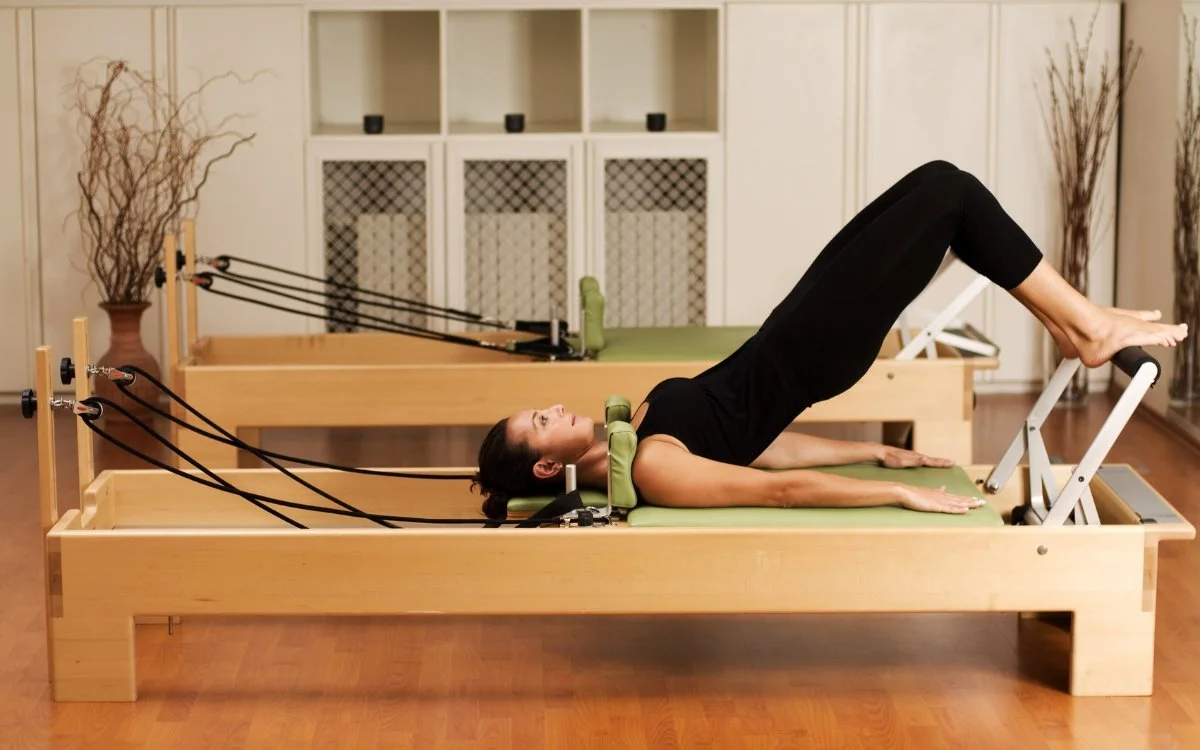Pilates vs. Personal Training: Which Is Best For Me?
In the journey toward physical fitness, the decision between Pilates and personal training is pivotal. Each method presents unique advantages and aligns with diverse fitness aspirations.
Choosing Your Fitness Path
Embarking on a fitness journey involves assessing various options to find the most suitable path. Pilates and personal training are two options with unique methodologies and advantages.
What Is Pilates?
Pilates, developed by Joseph Pilates in the early 20th century, is a holistic exercise system focused on improving flexibility, strength, and endurance without building bulk.
Pilates emphasizes core strength, proper alignment, and controlled movements.
Core Principles and Benefits
The core principles of Pilates include concentration, control, centering, precision, breath, and flow. These principles enhance physical fitness and promote mental focus and body awareness.
Pilates is known to improve posture, balance, and coordination while preventing injuries.
Who Is Pilates Ideal For?
Pilates is available to individuals of all fitness levels, from beginners to elite athletes.
It can benefit those seeking rehabilitation from injuries, older adults aiming to maintain mobility, and anyone looking to enhance overall fitness and wellbeing.
Personalizing Pilates To Meet Your Needs
One of the strengths of Pilates lies in its adaptability. Pilates can be modified to address rehabilitation, strength training, or stress relief.
Instructors often adjust exercises to accommodate individual needs, making Pilates accessible for diverse populations.
Exploring Personal Training
Personal training involves working closely with a certified fitness professional who designs a customized workout plan based on individual goals, abilities, and preferences..
What Does Personal Training Entail?
Personal training sessions typically include cardiovascular exercises, strength training, flexibility work, and functional movements.
Trainers provide personalized guidance, feedback, and motivation to help clients achieve their fitness objectives.
Who Would Personal Training Benefit?
Personal training appeals to individuals seeking personalized attention, accountability, and support in their fitness journey.
It benefits those with specific fitness goals such as weight loss, muscle gain, or sports performance improvement.
Pilates vs Personal Training: Key Differences
While both Pilates and personal training contribute to overall fitness, their approach and emphasis contrast.
Approach to Fitness and Wellbeing
Pilates focuses on building core strength, improving flexibility, and enhancing body awareness. Personal training offers a more varied approach, incorporating diverse workout modalities to target different muscle groups and fitness components.
Impact on Strength and Flexibility
Pilates enhances core strength, flexibility, and muscular endurance. Personal training focuses on building overall strength, power, and cardiovascular fitness.
Pilates may be more effective for improving flexibility and posture. Personal training can improve muscle mass and functional strength.
RELATED: 6 Benefits of Pilates for Men
Combining Pilates and Personal Training for Optimal Results
Together, Pilates and personal training can provide a comprehensive physical fitness program.
Creating a Balanced Fitness Routine
Integrating Pilates sessions for core stability and flexibility with personalized strength training workouts can create a well-rounded fitness regimen.
This hybrid approach addresses various fitness components, promotes overall strength, and reduces the risk of injury.
Pilates vs Personal Training: Which Is Best For Me?
The choice between Pilates and personal training depends on individual preferences, fitness goals, and lifestyle factors.
Assessing Your Fitness Goals
Consider your objectives, whether they involve improving core strength, enhancing overall fitness, or achieving specific performance milestones.
Reflect on your preferences for group classes versus one-on-one guidance and your willingness to commit to a regular exercise routine.
RELATED: How to Use a Pilates Ring
Pilates for Lifelong Fitness
For those prioritizing mind-body connection, injury prevention, and functional movement, Pilates offers a holistic approach to fitness that fosters long-term well-being.
Closing Thoughts: Finding Your Path to Personal Fitness
Whether you opt for Pilates, personal training, or a combination of both, the key is to embark on a fitness journey that aligns with your goals and motivates you to lead a healthier lifestyle.
Starting Your Pilates Journey: First Steps
Experience personalized Pilates training at The Pilates Circuit. With private 1x1 Pilates in New York, we craft sessions tailored to your needs, focusing on strength, flexibility, and balance.
Start your journey today with an intro session and work one-on-one with our skilled instructors. Visit our Chelsea Private Pilates Studio or NOMAD Pilates Studio to experience a space designed for focus and growth.
RELATED: How to Become a Pilates Instructor
FAQs
-
Hiring a private Pilates instructor offers personalized attention, tailored workouts, and focused guidance. This leads to faster progress and reduced risk of injury.
Working with a private instructor also allows you to address specific goals and receive immediate feedback.
When you take group classes, you get the benefit of movement but often not the progression and programming of working with a private instructor.
By focusing on form and weekly progressions, you’ll achieve your goals and see a difference a lot faster with a private trainer.
-
When selecting a trainer, it is important to consider their experience and method of teaching. Here are a couple of tips!
1.) Consider the trainer's experience with different fitness levels, ages, and goals. Is there anything specific that you’d be after? Let us know! Our trainers have diverse backgrounds and we can make sure you’re compatible.
2.) Ensure you feel comfortable asking questions and expressing your needs. The studio is a safe space, we want to hear everything - how things feel, if something is off, does this exercise make sense? We’re not here to boss you around or blindly lead, we’re collaborating and want to hear from you
3.) Seek recommendations and reviews from friends. You can read some of our reviews here. We take our client relationships super seriously, you trust us with your body and we’re honored that you’re here.
Attend trial sessions to gauge compatibility and teaching style. Book an intro session first: see how you vibe with the studios and the trainer.
If you don’t love your first session, we’ll comp your next one so that you can work with another instructor and see if there’s a better fit. We want you to LOVE your sessions with us.
-
Yes, Pilates-based strength training can aid in weight loss and muscle toning when combined with a balanced diet and regular exercise.
Pilates-based strength training exercises target multiple muscle groups simultaneously, helping to increase muscle mass, which in turn can increase calorie burn.
-
Yes, private Pilates training is highly beneficial for beginners as it allows for personalized instruction and guidance tailored to individual needs.
A private instructor can introduce beginners to the fundamentals of Pilates, including proper alignment, breathing techniques, and foundational exercises.
Private sessions offer a safe and effective way for beginners to learn Pilates principles and develop a strong foundation before progressing to more advanced techniques.
Most studios recommend starting with privates before progressing to groups for this reason.


